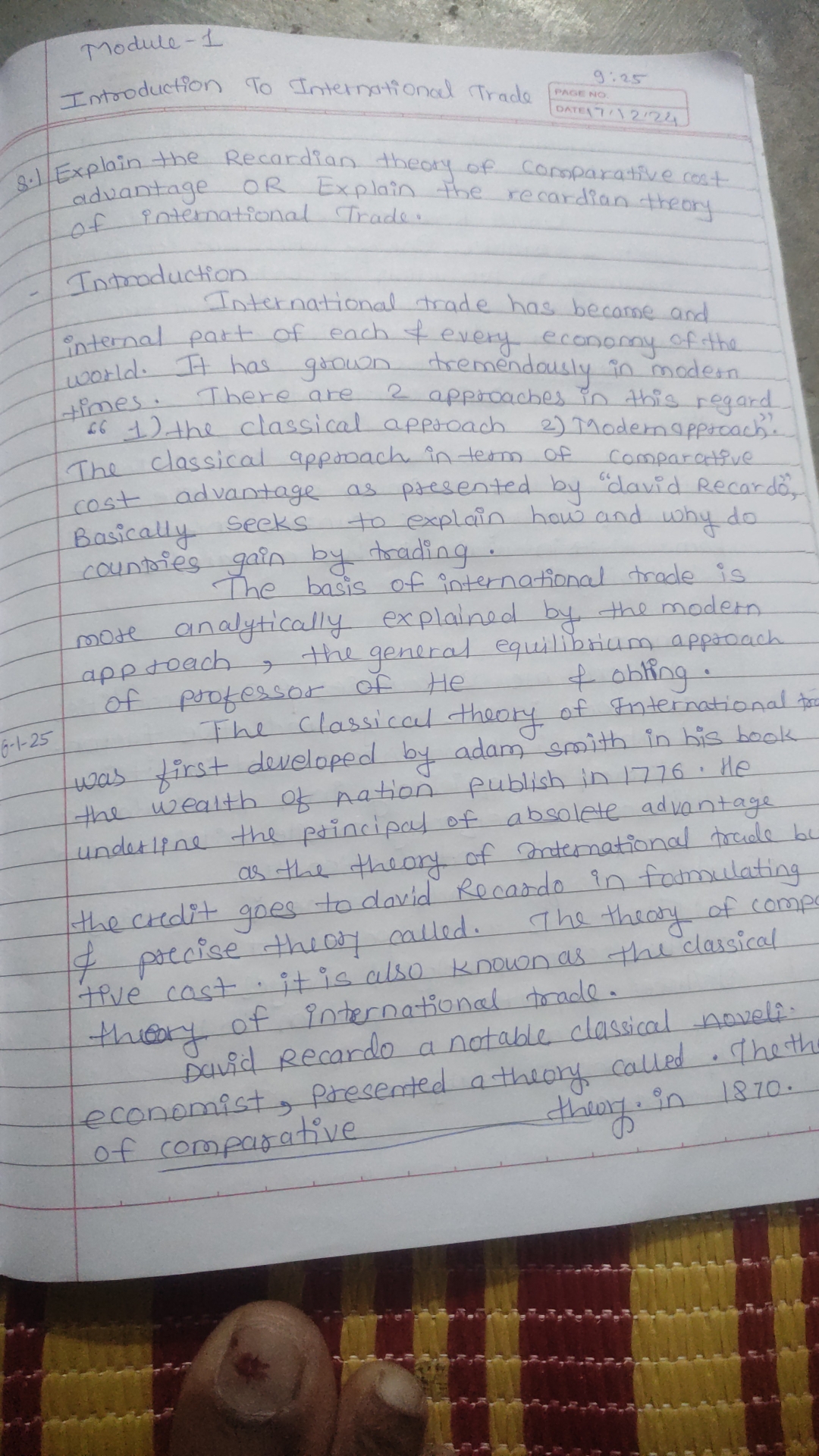Explain the Ricardian theory of comparative cost advantage OR Explain the Ricardian theory of international trade.

Understand the Problem
The question is asking to explain the Ricardian theory of comparative advantage, a key concept in international trade theory. This involves discussing how countries can benefit from trade by specializing in the production of goods where they have a lower opportunity cost.
Answer
David Ricardo's theory states that countries benefit from trade by specializing in what they produce most efficiently (lower opportunity cost).
The Ricardian theory of comparative cost advantage, developed by David Ricardo, explains that countries benefit from trade by specializing in producing goods for which they have a lower opportunity cost. This allows all participating countries to enjoy a better allocation of resources and increased efficiency.
Answer for screen readers
The Ricardian theory of comparative cost advantage, developed by David Ricardo, explains that countries benefit from trade by specializing in producing goods for which they have a lower opportunity cost. This allows all participating countries to enjoy a better allocation of resources and increased efficiency.
More Information
Ricardo's theory forms the basis for the argument that free trade can be beneficial even if one country holds an absolute advantage in all products, as focusing on comparative advantage optimalizes production and trade.
Tips
Ensure you're defining opportunity cost correctly, as it's central to understanding comparative advantage.
Sources
- Comparative advantage - Britannica - britannica.com
- The Ricardian Theory of Comparative Advantage - saylordotorg.github.io
- Comparative advantage - Wikipedia - en.wikipedia.org
AI-generated content may contain errors. Please verify critical information